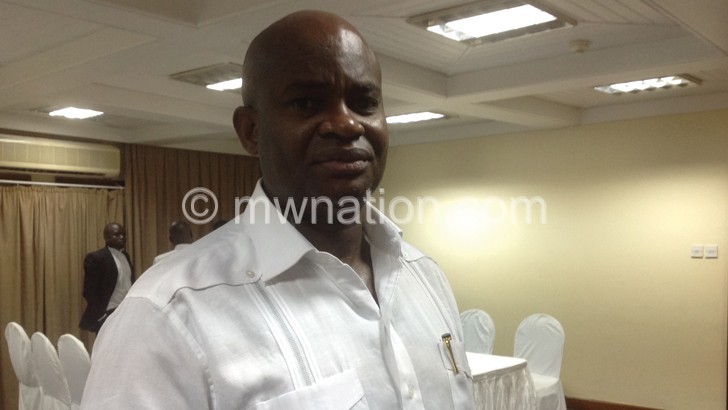‘Loopholes undermine public finance systems’
A legal expert says the country’s public finance management laws have loopholes that are undermining the fight against theft and abuse of the national purse.
Speaking during a public lecture Malawi Law Society (MLS) organised at Sunbird Capital Friday evening, Professor Dan Kuwali said where the law is adequate and carries penalties for violating it, there has been laxity by duty-bearers, such as the Secretary to Treasury and Auditor General, to mete out punishments, including penalties enshrined in the law.

He said the public finance management is also haunted by lack of guidelines for revenue collection and expenditure, absence of reports on previous expenditure by ministries, departments and agencies (MDAs) when asking for fresh funding; lack of accountability on unforeseen expenditures which is approved by Cabinet and not Parliament; lack of reports on revenue generated by parastatals and delay in submission of mandatory financial reports by the State-run enterprises.
The presentation, titled ‘Public Purse: Use, Misuse, Abuse of Government Resources’ was attended by Malawians from all walks of life, including representatives from civil society and professional bodies such as accountants and auditors.

Kuwali, a Brigadier General in the Malawi Defence Force (MDF) as well as senior partner at a private law firm and author, said the cited areas of concern have remained unaddressed in spite of Cashgate—the biggest public finance management scandal to have hit independent Malawi in 2013.
He also gave a few examples of attempts to tighten the system, but pointed out—as a low point— continued reported weaknesses in the Integrated Finance Management Information System (Ifmis), which he described as outdated.
Kuwali further said there was a need to change the mandate of the Malawi Revenue Authority (MRA) to expand its work beyond collecting tax to include revenue from other government departments.
“The first major loophole is that there are no guidelines for revenue collection and expenditure of public resources. An argument can be made that a budget statement is a guideline on expenditure, but an argument can be made equally that it is adhoc and short-term. We need a long-term vision that should guide the budgeting,” he added.
But Nations Msowoya, head of National Authorisation Office (NAO), a unit in the Ministry of Finance, while acknowledging most of the challenges cited, said the presentation had a few factual mistakes.
He further lamented that there was little acknowledgement of the progress so far made.
“There has been a number of reforms over the years and there are a number of reasons for optimism. Of course, we still need to work on for improvement,” said Msowoya.some of the recommended areas
Chiza Jere, a representative of Institute of Chartered Accountants in Malawi, said challenges of abuse of resources and inefficiencies in government cannot be solved unless civil servants are paid good salaries.
“If civil servants were not stealing from the government coffers the country would still suffer because they will not be doing their work and will use their time trying to earn a living through additional jobs or businesses. Civil servants should be paid living wages but they are currently being paid peanuts so they are stealing,” he said said.
Earlier, Malawi Law Society (MLS) president Khumbo Soko, whose tenure ends in a fortnight, lamented a decline in responsibility by both duty-bearers and the citizenry, to hold accountable those who abuse State resources.
He said those in office no longer believe in the notion of holding power on behalf of the citizenry and further lamented a state of affair where the citizenry do not feel ownership of State resources; hence do not feel any pain when officers abuse the same.
“Our Constitution is said to be a living document. It embodies the aspirations of our people. Their dreams and their hopes. And its text clearly provides that those who manage our common wealth, opportunities and affairs do so as our surrogates. Our fundamental law clearly provides that State power is not pursued or attained for its own sake. But it must be used in fidelity to true stewardship to deliver our people from debilitating and dehumanising indignity of avoidable penury,” said Soko.
During the plenary, several commentators from business, civil society and the general public reflected on the sad state of affairs and sought clarifications on whether the country was, to quote one participant, “redeemable”.
The public lecture was held as part of a series of topics held across the country. One of the lectures, at the same venue, flopped due to poor attendance, forcing MLS to apologise to Justice Minister Sam Tembenu who had shown up. But Friday’s event was held in a jam-packed room as the audience scrambled for seats.





